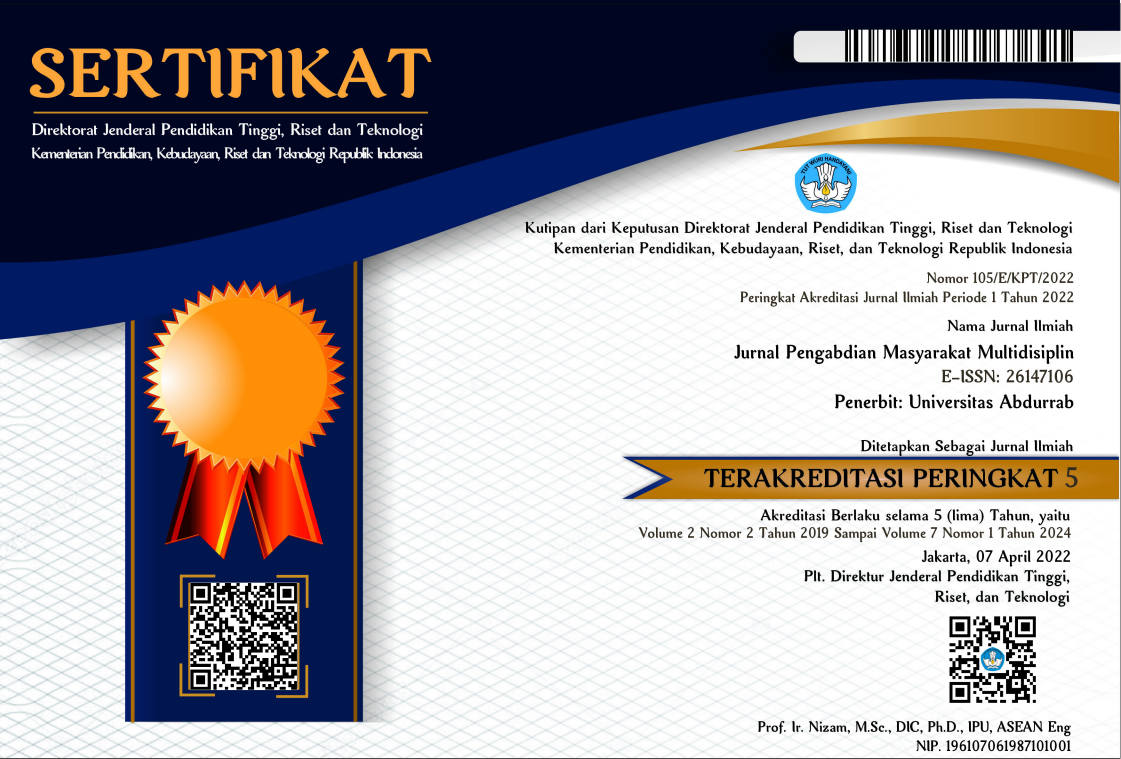PEMBERDAYAAN KELOMPOK BINA KELUARGA BALITA TERHADAP TUMBUH KEMBANG BALITA USIA 0-18 BULAN DI DESA PULAU JAMBU
DOI:
https://doi.org/10.36341/jpm.v6i1.2538Keywords:
Toddlers aged 0-18 months, BKB, Growth and DevelopmentAbstract
Toddler Family Development (BKB) is a forum for families with toddlers to increase the knowledge and ability of parents to care for their children to avoid stunting. Pulau Jambu Village is one of the areas in Kampar Regency, Riau Province, which has the highest stunting incidence in Kampar Regency. Empowerment of mothers through educational education with modeling methods is needed to increase the knowledge and skills of mothers in increasing the growth and development of children. The purpose of the activity is to increase the knowledge and skills of mothers in stimulating the growth and development of children aged 0-18 months. The method of activity is providing education for 4 meetings and the practice of baby massage which is carried out from March to June 2021. The results of the activity obtained an increase in mother's knowledge about growth and development with a value of 76.24 to 92.44, as well as mother's skills in doing baby massage, namely from 56.40 to 83.88. Counseling on the growth and development of toddlers can be continued by cadres and village officials to prevent stunting in toddlers.
Downloads
Downloads
Published
How to Cite
Issue
Section
License
1. Copyright of all journal manuscripts is held by the Jurnal Pengabdian Masyarakat Multidisiplin.Formal legal provisions to access digital articles of electronic journal are subject to the provision of the Creative
2. Commons Attribution-ShareAlike license (CC BY-NC-SA), which means that Jurnal Pengabdian Masyarakat Multidisiplin is rightful to keep, transfer media/format, manage in the form of databases, maintain, and
3. publish articles.Published manuscripts both printed and electronic are open access for educational, research, and library purposes. Additionally, the editorial board is not responsible for any violations of copyright law.
licensed under a Creative Commons Attribution-ShareAlike 4.0 International License.







